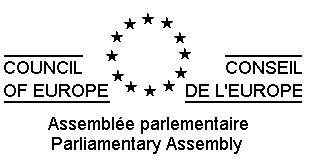Legislazione

Environmental impact of the war in Yugoslavia on South-East
Europe
Recommendation 1495 (2001) [1]1.
The Assembly notes with concern the serious environmental impact of military
operations over the Federal Republic of Yugoslavia between 24 March and 5 June
1999, as documented inter alia by the United Nations:
i. air, river and underground
transfer of pollutants have affected the whole of south-east Europe, particularly
Albania, Bulgaria, Greece, Hungary, Romania, “the former Yugoslav Republic
of Macedonia” and Ukraine;
ii. effects on health
and quality of life will be long-lasting, and future generations will likewise
be affected, notably as a result of the targeting of industrial and
storage sites containing substances hazardous to health and Nato’s use of
ordnance containing depleted uranium;
iii. direct and indirect damage has dramatically worsened
the condition of the natural environment, which was already very poor.
2. States involved in these
operations – and operations in Bosnia and Chechnya – disregarded the international
legal rules (Articles 55 and 56 of Protocol I (1977) to the Geneva Conventions
of 1949) intended to limit environmental damage in armed conflict.
In the Assembly’s view these rules should be strengthened and enforced in order
to prevent or at least lessen such violations of fundamental human rights in
any future conflict.
3. Further to its Recommendation
1452 (2000) on the parliamentary contribution to the implementation of the Stability
Pact for Southeastern Europe, the Assembly considers:
i. that the means available
to affected countries are inadequate to protect and rehabilitate the environment;
ii. that those countries
should be provided with special technical and financial assistance for emergency
environmental rehabilitation measures and for monitoring the health and living
conditions of their populations;
iii. that rehabilitation
of the environment should be included in programmes for economic, social and
transport rebuilding; that these programmes should adopt an integrated approach
to socio-economic and long-term ecological issues, in keeping with acknowledged
principles of “sustainable development” as set forth in the Declaration of
the United Nations Conference on Environment and Development (Rio de Janeiro,
14 June 1992); and that the Stability Pact for Southeastern Europe should
be enhanced by a special protocol for repairing the environmental damage caused
by the conflict;
iv. that non-governmental organisations
are making important contributions, not least in terms of heightened public
awareness; that the international community should give them greater
support; and that the Stability Pact should also be used for this purpose.
4. The Assembly accordingly recommends
that the Committee of Ministers:
i.
initiate joint discussions with the OSCE on drawing up a convention,
notably to ensure compliance with Articles 55 and 56 of Protocol I (1977)
to the Geneva Conventions of 1949, on the prevention of environmental damage
as a result of military force or crisis-defusing measures;
ii.
consult with the European Union on drawing up a protocol to the Stability
Pact for South-Eastern Europe to tackle the region’s environmental problems;
iii.
use its own resources to support non-governmental organisations in the region,
including the Federal Republic of Yugoslavia, which are engaged in repairing
environmental damage caused by military operations and in rehabilitating the
natural environment.
iv.
call for a ban on the manufacturing, testing, use and sale of weapons containing
depleted uranium or plutonium;
v.
demand that NATO and the UN implement a medical surveillance programme for
civilian populations in the Balkans, soldiers having taken part in operations,
members of humanitarian organisations and journalists having worked in the
area.
[1]
Assembly debate on 24 January 2001 (5
th Sitting). See Doc.
8925, report of the Committee on Environment, Regional Planning and Local Authorities
(rapporteur: Mr Kurykin). Text adopted by the Assembly on 24 January 2001
(5
th Sitting).


